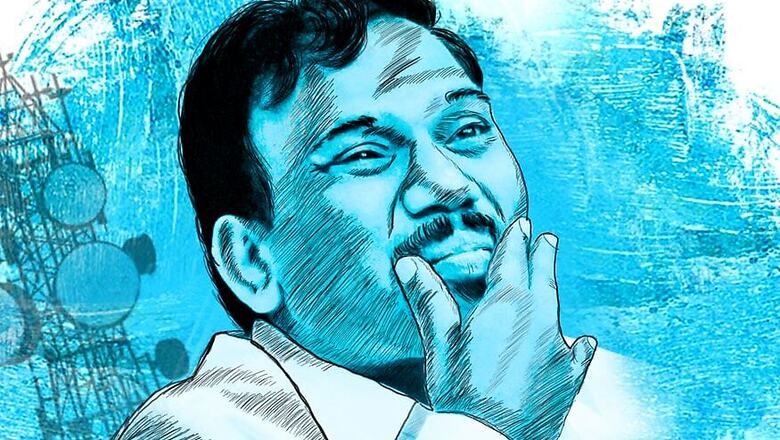
views
New Delhi: The Central Bureau of Investigation (CBI) court in New Delhi on Thursday pronounced its verdict in the Rs 1.76-lakh-crore 2G spectrum allocation scam of 2008 where it acquitted all of the accused.
With the long-running case coming to a close, whether satisfactory or not is for some other day, it would be interesting to see how the case and key moves in it by the court and the national auditor changed the country’s telecom landscape significantly.
How did it lead to consolidation of the telecom sector and it being burdened by debt?
The telecom sector is plagued with consolidation and debt burden.
Both consolidation and the debt issue trace back to the 2G spectrum scam of 2008, and the actions taken by the Comptroller and Auditor General (CAG) and Supreme Court.
In 2012, when the Supreme Court ordered the scrapping of 122 telecom licences granted by the then telecom minister A Raja four years earlier, it forced the first round of consolidation in the sector. By giving spectrum on a ‘first-come, first-served’ basis, Raja doubled the number of players from seven to 14, and thereby ensured a cut-throat price war, telecom rates, as a result, were halved. The eight new players invested approximately Rs 40,000 crore in two years and acquired about 70 million subscribers, or eight percent of market share in terms of subscriber base.
However, the apex court’s decision forced operators like Etisalat, which owned a 45 percent stake in Swan Telecom, C Sivasankaran promoted S-Tel, and Loop Telecom, bring the curtains down. Some others like Videocon, Telenor and Sistema (21 licences), having lost their licences after the court order, returned to participate in future auctions, but only as niche players.
According to media reports, the SC order took the number of operators in the market back to the level before Raja gave away licences.
The CAG report, meanwhile, benchmarked the artificially high 3G spectrum price to conclude that Raja’s decision to offer 2G spectrum at an administered price caused the government a loss of Rs 1.76 lakh crore.
The conclusion pushed the government to play it safe and the price of spectrum in all subsequent auctions was benchmarked to 3G rates. The high price level forced telecom operators to borrow money, something that later lead to a debt burden for many.
What happens to the 122 cancelled licences now?
The scam involved giving in 2007 telecom licences and spectrum at 2001 prices at a little over Rs 1600 crore, among others. As a result of which, all 122 licences given by Raja to nine companies had been cancelled by the Supreme Court in February 2012 on the grounds that the process of allocation was flawed.
The Enforcement Directorate had also alleged money laundering.
Apart from A Raja and Kanimozhi , the others accused in the telecom scam included Raja’s former private secretary R.K. Chandolia, Reliance ADAG Group managing director Gautam Doshi, its senior vice president Hari Nair, group president Surendra Pipara, Swan telecom promoter Vinod Goenka, Unitech Ltd managing director Sanjay Chandra, Essar Group promoters Anshuman and Ravi Ruia, its director Vikas Saraf, Loop Telecom promoters Kiran Khaitan and her husband I.P. Khaitan.
Three telecom firms — Swan Telecom Pvt Ltd (STPL), Reliance Telecom Ltd and Unitech Wireless (Tamil Nadu) Ltd were also accused and acquitted in the case.
While all the accused in the telecom scam have been let free, the fate of the 122 cancelled licences is not clear and stands cancelled by the Supreme Court as of now
How are shares of the accused company doing since 2008?
Shares of Sanjay Chandra-controlled Unitech and Anil Ambani-owned Reliance Communications (RCom) along with Tata Teleservices accused in the scam have not been able to regain lost glory since August 2007, when the government initiated the process of allotment of 2G spectrum.
While Unitech has slipped 97% from Rs 257 on August 01 2007 to Rs 7 levels now, RCom has tanked from Rs 530 levels back then to around Rs 17 levels. By comparison, the S&P BSE Sensex has gained nearly 126% during this period.
Post the CBI court verdict that acquitted all accused, including former telecom minister A Raja, stocks of these listed companies rallied as much as 20% in intra-day deals.
Read all the Latest News, Breaking News and Coronavirus News here


















Comments
0 comment